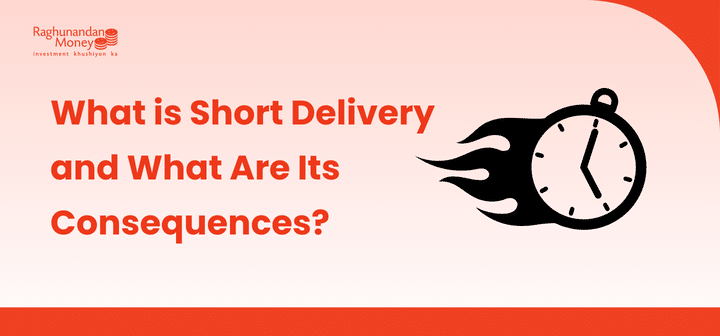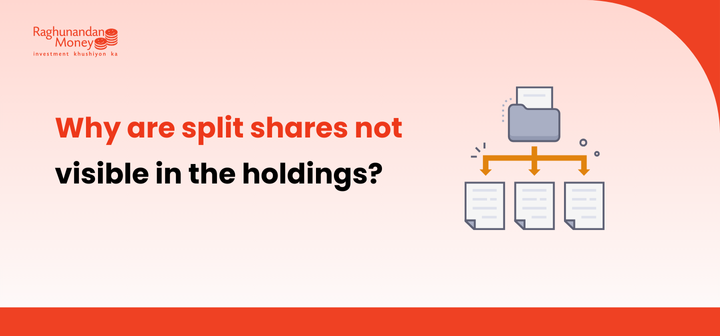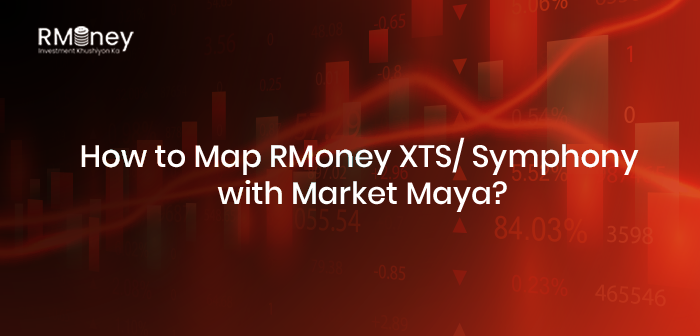In the Indian stock market, every trade follows a settlement cycle where funds and securities must be delivered by the broker to the exchange on the T+1 day (i.e., one working day after the trade execution). This delivery process is called the pay-in.
But what happens if the seller does not actually own the shares or fails to deliver them on time?
This situation is termed a Short Delivery.
What is Short Delivery?
A short delivery occurs when a seller fails to deliver the shares they sold by the scheduled pay-in time. This is common in cases like BTST (Buy Today Sell Tomorrow) where shares are sold before they are received in the demat account, or if the seller doesn’t have the required quantity
in their demat account.
In such cases, the buyer doesn’t receive the shares, and the exchange initiates an Auction process on T+1 day to source the undelivered shares and ensure timely delivery to the buyer.
Auction Process for Short Delivery
Auction Timing:
Auctions are held daily between 2:00 p.m. and 2:45 p.m. Traders holding the required stock can offer their shares during this window. However, to avoid any conflict of interest, the broker whose client has defaulted is not allowed to participate.
Auction Price Band:
The price range for auction is ±20% of the stock’s closing price on T (trade day). The final auction price is usually the lowest price at which shares are offered during the session.
Valuation Price & Valuation Debit:
- Valuation Price: This is the closing price of the stock on T day.
- Valuation Debit: The exchange blocks an amount in the broker’s account equivalent to (Valuation Price × Quantity of shares short delivered). This acts as a provisional penalty for default.
What Happens Post-Auction?
Scenario 1 – Auction at a Price Higher than Valuation Price
Let’s say the shares are auctioned at ₹2,200 while the Valuation Price was ₹2,100. The broker will be debited an additional ₹100 per share (₹2,200 - ₹2,100), which is borne by the defaulting client. The shares are delivered to the buyer by T+2.
Scenario 2 – Auction at a Price Lower than Valuation Price
If the shares are bought at ₹1,900, the buyer still receives the shares. However, the broker is charged ₹2,100 per share (Valuation Price), and the ₹200 difference goes to the Investor Protection Fund (IPF).
Scenario 3 – No Sellers in Auction Market (Close-Out)
If the exchange fails to source shares in the auction, it conducts a Close-out. This means the buyer is compensated in cash instead of shares. The close-out price is the higher of:
- The highest price between T and T+1, or
- 20% above the closing price on T
Scenario 4 – Short Delivery in T2T Segment
For stocks in the Trade-to-Trade (T2T) category, short deliveries are directly cash settled.
The close-out price is either:
- The highest price between T and T+1, or
- 20% above the T day closing price—whichever is higher.
Scenario 5 – Internal Settlement
If both the buyer and seller belong to the same brokerage, the broker may resolve the short delivery internally according to their own policy.
Example to Understand Short Delivery Better
Mr. Abhiraj short sells 10 shares of Titan Ltd at ₹2,000 on Monday (T) but fails to square off the position.
- Closing price on T: ₹2,100 (Valuation Price)
- Valuation Debit = ₹2,100 × 10 = ₹21,000
- On Tuesday (T+1), the exchange holds an auction where the price band is ₹1,680 to ₹2,520.
Now, three things could happen:
- Auction price = ₹2,200: Abhiraj pays ₹100 extra per share (₹1,000 total).
- Auction price = ₹1,900: ₹200 per share goes to IPF; Abhiraj still pays ₹2,100.
- No sellers: Exchange cash-settles the trade, paying buyer a higher close-out amount.
Additional Notes:
- Physical settlement of derivatives involves auction on T+3 and final settlement on T+4 if there’s a delivery default.
- Clients are not allowed to participate in auction sessions.
- Visit the NSE or BSE Website to learn more about auction and settlement rules.
Need Help?
Contact RMoney at 0562-4266600 / 0562-7188900 or email us at
askus@rmoneyindia.com 
Stock Trading Now trade in ₹9 Per Order or ₹ 999 Per Month Plans.
Future & Options Access F&O contracts with advanced tools for hedging and speculation.
Currency Trading Trade in major currency pairs and manage forex exposure efficiently.
Commodity Trading Diversify Trading with MCX & NCDEX by Trading in Gold, Silver, Base Metals, Energy, and Agri Products.
Margin Trading Funding Boost your buying power with upto 5X, Buy now Pay Later
Algo Trading Back test, Paper Trade your logic & Automate your strategies with low-latency APIs.
Trading View Leverage Trading View charts and indicators integrated into your trading platform.
Advanced Options Trading Execute multi-leg option strategies with precision and insights.
Stock Lending & Borrowing Earn passive income by lending stocks securely through SLB.
Foreign Portfolio Investment Enable NRIs and FPIs to invest in Indian markets with ease and compliance.
IPO Invest in upcoming IPOs online with real-time tracking and instant allotment updates.
Direct Mutual Funds 0% Commissions by investing in more than +3500 Direct Mutual Fund Scheme.
Corporate FDRs Earn fixed returns with low-risk investments in high-rated corporate fixed deposits.
Stocks SIPs Build long-term wealth with systematic investment plans in top-performing stocks.
Bonds & NCDs Access secure, fixed-income investments through government and corporate bond offerings.
Depository Services Safely hold and manage your securities with seamless Demat and DP services with CDSL.
Journey Tracing our growth and milestones over time.
Mission & Vision Guided by purpose, driven by long-term vision.
Why RMoney Platform Smart, reliable platform for all investors' needs.
Management Experienced leadership driving strategic financial excellence.
Credentials Certified expertise with trusted industry recognition.
Press Release Latest company news, updates, and announcements.
Testimonials Real client stories sharing their success journeys.
7 Reasons to Invest Top benefits that make investing with us smart.
SEBI Registered Research Trusted insights backed by SEBI-compliant research.
Our Technology Advanced tools enabling efficient online trading.
Calculators Access a suite of smart tools to plan trades, margins, and returns effectively.
Margin Calculator Instantly check margin requirements for intraday and delivery trades.
MTF Calculator Calculate MTF funding cost upfront to ensure full transparency before placing a trade.
Brokerage Calculator Know your exact brokerage charges before placing any trade.
Market Place Explore curated investment products and trading tools in one convenient hub.
RMoney Gyan Enhance your market knowledge with expert blogs, videos, and tutorials.
Performance Tracker Track our research performance with full transparency using our performance tracker.
Feedback Share your suggestions or concerns to help us improve your experience.
Downloads Access important forms, software, and documents in one place.
Locate Us Find the nearest RMoney branch or service center quickly.
Escalation Matrix Resolve issues faster with our structured support escalation process.
Back Office Log in to view trade reports, ledger, and portfolio statements anytime.
Account Modification Update personal or bank details linked to your trading account.
Fund Transfer Transfer funds instantly online with quick limit updation to your trading account.
Bank Details View our registered bank account details for seamless transactions by NEFT, RTGS or IMPS.
How to Apply IPO Step-by-step guide to apply for IPOs using your trading account.
RMoney Quick Mobile App Trade on-the-go with our all-in-one mobile trading app.
RMoney Quick login Quickly access your trading account through the RMoney Quick web-based trading.
RMoney Rocket Web Version Experience powerful web-based trading with advanced tools for algo traders.
RMoney Rocket Mobile Version Trade anytime, anywhere with our feature-rich mobile trading platform.



















